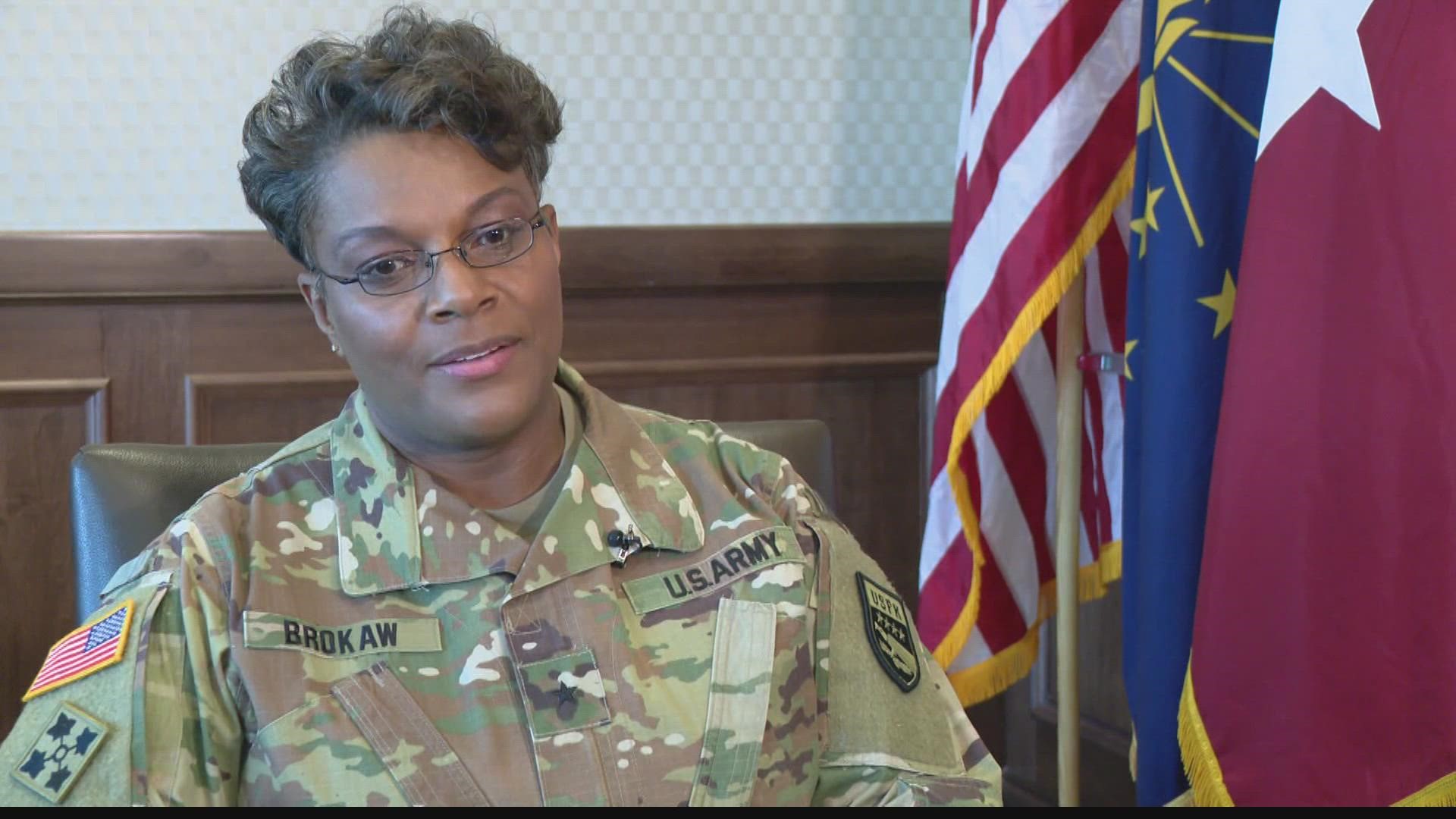Diversity Military - February 17, 2022 ASU hosts a conversation with Bishop Garrison, Senior Advisor to the Secretary of Defense for Human Capital and Diversity, Equity and Inclusion.
The Ministry of Defense is one of the largest meritocracies in the world, but representation in the ranks is not reflected in leadership.
Diversity Military

Wednesday's topic was "Diversity and Inclusion in America's Society and Military: Why It Matters."
Military Academies' Ability To Measure Diversity Questioned
Co-sponsored by the Arizona State University Center on the Future of War and the Thunderbird School of Global Management, the speaker was Bishop Garrison, Senior Advisor to the Secretary of Defense for Human Capital and Diversity, Equity and Inclusion.
Garrison serves as the lead advisor on responding to and preventing sexual assault, extremism and other priority areas. He previously served as Director of National Security Development at Human Rights First. He graduated from the United States Military Academy at West Point and served two tours in Iraq with the Army. Your job is a new position in the department.
DEI, or Diversity, Equity and Inclusion, is a conference table, Garrison said. Around that table are people who have had a voice for a long time. DEI's job is to add a seat at the table and include people who didn't already have a seat.
"Diversity is about making sure we have the most capable teams and leaders to address the challenges of the 21st century," he said. "What I want people to understand is that diversity makes a stronger fighting force, makes a more capable force, multiplies a force."
Top Us General Mark Milley Urges Greater Racial Diversity In Military
Garrison served as a platoon leader during the 2003-2004 invasion and occupation of Iraq, where he designed and led nearly 150 successful combat missions with no injuries or casualties.
From 2004 to 2006, he served as the regimental support group signal officer for the 3rd Armored Cavalry Regiment, managing all communications and automation assets for an 1,100-troop platoon.
Bishop Garrison, senior advisor to the Secretary of Defense for Human Capital and Diversity, Equity and Inclusion, speaks with the Center for the Future of War and its co-director, Daniel Rothenberg (not pictured), on the topic of "Diversity and Inclusion." . In Society and the United States Armed Forces".
How did the transition from fighting in Iraq to managing an invasion and occupation affect how you feel about the mission of the US military? Garrison was one of the few colored officers in his regiment.
Troops Tell Esper That Dod Should Not Lose Focus On Diversity, Inclusion > U.s. Department Of Defense > Defense Department News
During his first six months as platoon leader, he had no translator or way to understand cultural differences.
"It's all based on data," Garrison said. We don't go by instincts. ... What the data tells us is that middle-aged people, especially women and people of color, are dating. ... Those are the best years when you start to qualify for any kind of entry-level position, so that you're competitive when you're selected for colonel and other flag ranks."
Sometimes the reason for leaving the military is that you can earn more money abroad with your skills.
Sometimes young men join the military and begin combat support roles. You have to be in a combat unit to advance, Garrison said.
Mark Milley, Top Us General, Hits Back Against 'offensive' Gop Criticism And Defends Pentagon Diversity Efforts
"If you start out and you don't have a lot of diversity in those ranges, you're already drawing from a smaller pool," he said. If they don't see this career path, they will leave."
What is the timeline for showing improvement metrics? What policies can be implemented to support these goals?
In the long term, between three and five years, I think that's when you can really look back and see how you've done in representing our higher ranks. ... What do we do to invest in them?

Solutions Tempe Campus School of Politics and Global Studies College of Liberal Arts and Sciences Center on the Future of War Diversity Military Legislative Community
Pentagon's Elite Forces Lack Diversity
Editor's note: This story appears in the 2022 Review. Increasing access to degrees, reducing barriers, and ensuring student success through graduation is done in a variety of ways, all of which support the next generation of valuable legal professionals. Sandra Dee Arizona State University College of Law graduate James McAnally and his wife, Ann McAnally, are doing...
Phoenix Downtown Campus, Watts College of Public Service and Community Solutions, School of Public Affairs, COVID-19 Research and Resources
Increasing access to degrees, reducing barriers, and ensuring student success through graduation are accomplished in a variety of ways, all of which are valuable in supporting the next generation of legal professionals. ASU law graduate James McAnally holds a photo of his mother, Virginia Miller, who he says has inspired him in every way. Download the full image
Sandra D. O'Connor, a graduate of Arizona State University's James McAnally College of Law, and her wife, Anne McAnally, have made the largest property commitment to ASU Law to date. The $4.5 million gift will fund scholarships for students.
Through A Gender Lens: The Need For Robust Research Into Diversity And Military Effectiveness
"This is an incredible gift from Jim and it is a great contribution to ASU Law and our students," said Adam Chodrow, ASU's Acting Provost for Legal Affairs. "This gift helps those who want to go to law school but otherwise would not be able to pursue their dreams and benefits our students and the law school community at large. Jim and Anne are shining examples of the generosity of the law community." ASU and the niche we've created here."
Every gift has a story. This one is driven by a cause, purpose, or inspiration, and the emotionality behind the commitment makes it all the more meaningful.
Often the support of family and friends is what keeps students going through evening study groups, study hours, study and the final push to cross the finish line. For McAnally, her mother, Virginia Miller, encouraged her to take advantage of every opportunity.

"My mother was a wonderful woman and inspired me in every way," McAnally said. "I think the best thing that ever happened to me was getting accepted to law school, and I'm honored to have the opportunity to contribute so that future law students can do the same."
Diversity And Military Service: Past Concerns, The Present Situation And What History Tells Us
Miller was diagnosed with polio, a condition that forced him to use crutches for 40 years of his life and spent the last eight years in a wheelchair. Despite the illness, he had the will to recover and persevere. It was his trademark.
"Life for him was just a hard argument," he said. "It was so inspiring to see him go through that. You just have to take your hat off to someone like that, who can go through all that and still have that attitude. Very positive attitude."
Miller's tenacity and focus on life were what drew McAnally to serve in the Navy and eventually study law. It was there that he met Alan Matheson, a founding faculty member at ASU Law and the third dean. Matheson gave McAnally words of encouragement and solidified her decision to practice law at ASU, which eventually led to a successful career as a lawyer in the Valley, and supported her mother in what would later become a case-change.
In 1979, after Miller's husband died and with McAnally's help, she challenged American Express and its right to cancel the wife's credit card after it canceled the card issued to her while she was married.
Bias: The Hidden Figure In Diversity
McAnally researched the then-recently signed Equal Credit Opportunity Act by President Gerald Ford and approached American Express on her mother's behalf.
"I called them and told them what I thought about it," he said. “They looked at it and thought what they were doing was legal. I told them I thought the Arizona court might not agree with them."
McAnally met with his old friend and ASU law alumnus, Craig Marton, to review the material he had collected. After hours of going over the details, they both agreed that they had a case in hand.

Marton took the case and filed it in federal court: Miller v. American Express. The court ruled against Miller, prompting Marton to later appeal to the U.S. Court of Appeals for the Ninth Circuit, ultimately reversing the defeat in what would become one of the first cases of the Equal Credit Opportunity Act.
Soldiers Weigh In On Army's Diversity And Inclusion Efforts
It was this fighting spirit passed down from her mother that led McAnally to approach Marton with a case that would be mentioned in future textbooks and exemplify consumer protection litigation. This is one of the most important cases reported in the Equal Credit Opportunity Act.
McAnally credits her mother as the driving force behind everything she has achieved in life. His character, courage and spirit continue to inspire him to this day, and he hopes to inspire future lawyers as well.
"There's a lot wrong with the world today, and there's a lot the law can fix," McAnally said. “When things go wrong, the lawyers who have it
Diversity hiring, military chaplains and religious diversity, diversity training, military diversity training, diversity certification, diversity staffing, diversity metrics, diversity analytics, cultural diversity in the military, military diversity statistics, military diversity, diversity sourcing

0 Comments